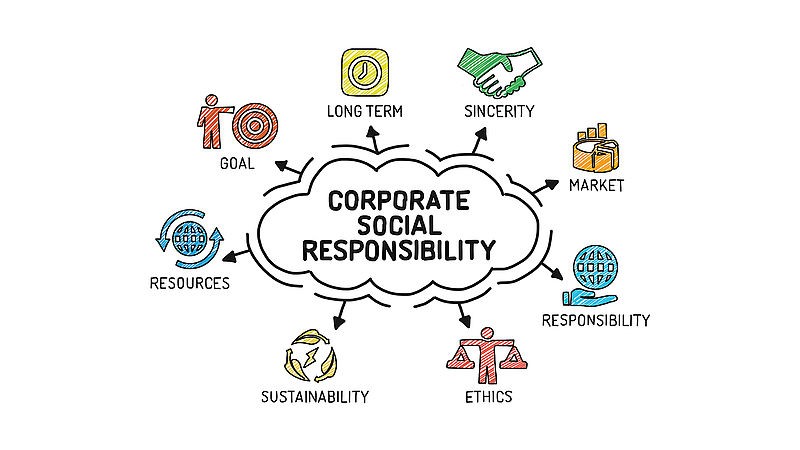Motivation is something many of us would like more of – in lots of aspects of our lives! We probably all know someone who is extremely motivated towards their goals and often achieving great things. We’ve all heard the expression “Hard work pays off”. So how can we boost our motivation? This article outlines two theories of workplace motivation in the field of Occupational Psychology.
Motivation is comprised of three elements:
- Effort
- Prioritisation
- Persistence
Above all, to be highly motivated you will need to apply all three elements towards your goal. Environmental factors such as rewards and inherent factors such as personal motives and needs, influence motivation. There has been much research into motivation as it is positively correlated with performance in the workplace. Thus, what makes people motivated and how can we increase our own motivation? – let’s look at some theories…
Self-Determination Theory

Self-determination theory (SDT) was developed in the 1970s and 1980s by researchers Edward L. Deci and Richard M. Ryan’s [1]. SDT suggests that there are two types of motivation; intrinsic and extrinsic. Both are important for shaping who we are and how we behave. Intrinsic motivation comes from within us from internal drives, such as core values, interests, morals etc. It is considered to be the purest form of motivation as it fulfils our need for autonomy. Conversely, extrinsic motivation is based on external sources which provide external rewards such as awards, accolades, respect of others, a high grade etc. This can undermine intrinsic motivation because we no longer “do it for ourselves” but are driven to achieve a reward.
Therefore, to achieve the highest level of motivation, we need a genuine interest in our work. Moreover, we need to feel like our work brings value to the company. Organisations often believe that high salaries or commission for work motivates their employees. This can actually have a negative effect as people “do it for the money”. Instead, we must strive to have employees who are intrinsically motivated and work hard for their own sense of fulfilment.
Implications
- Extrinsic rewards such as offering pay for work is necessary for most jobs. However, we must ensure that such things don’t harm motivation. Thus, the job salary offered must be suitable. For example, if it is too high, then people will be tempted to apply for the job on the basis of the money instead of a desire to do the job.
- It is important to ensure that the core work tasks:
-
Offer the individual a degree of autonomy
-
Are interesting to the individual
-
The individual identifies and internalises the values of the organisation
If such conditions are met, then there is a high chance of a highly intrinsically motivated employee.
Prosocial Motivation Theory
Prosocial motivation theory was developed by Adam M. Grant in 2007 [2]. It is based upon the idea that people are motivated not just by self-interest but also to help others in their work. Prosocial motivation is the motivation to make a positive difference for others. There are many jobs where people put themselves out for others, for example, firefighters, paramedics, doctors, nurses, carers, teachers and so on. For many people, their strong desire to help others may motivate them towards these types of jobs. Individuals may even sacrifice basic needs like pay and physical security in their role.
An example…
You may know someone who works as a nurse or doctor in a hospital who works long 12-hour shifts. Despite being exhausted they often carry on working after their shift has ended, to see any remaining patients. This individual regularly works unpaid overtime throughout the year and enjoys their job. It is likely that the individual has a high prosocial motivation and gets satisfaction from helping patients. Therfore, this motivation is strong enough to overcome their dissatisfaction with working conditions and pay.
Recommendations
- Firstly, design jobs that have opportunities for individuals to benefit others and feel as though they are making a difference. If this is not possible in the job role, it should be met through company Corporate Social responsibility (CSR) policies. For example, the company should support charities, environmental initiatives etc. Studies have shown that CSR can boost an employee’s motivation [3].
- In addition, ensure that employees have contact with beneficiaries. This will make people care more about making a difference as they can see the positive benefits.

Image retrieved from
In conclusion, it is important to consider individual differences; not everyone will have prosocial motivation and a desire to help others. However, the majority of people are likely to have such motivation and those who are most motivated to help others will self-select into prosocial jobs.
How can Impact help you?
Workshops
We design and deliver bespoke workshops, tailored to our clients’ needs. We focus on understanding your requirements and co-designing the content with you. In this way, we ensure that we deliver the most efficient and cost-effective solution, one that will help you tackle any issues and achieve maximum results. For more information click here.
Coaching
We offer coaching sessions individually tailored to your needs in order to enhance individual, team and organisational performance. We collaborate with you to provide insight and discovery into your professional life, and to understand how you can use your personality strengths to harness your mind and drive success. For more information click here.
References:
1.Deci, E. L., & Ryan, R. M. (2008). Self-determination theory: A macrotheory of human motivation, development, and health. Canadian psychology/Psychologie canadienne, 49(3), 182.
2.Grant, A. M. (2007). Relational job design and the motivation to make a prosocial difference. Academy of management review, 32(2), 393-417.
3.Kim, C. H., & Scullion, H. (2013). The effect of Corporate Social Responsibility (CSR) on employee motivation: A cross-national study. Poznan university of economics review, 13(2).